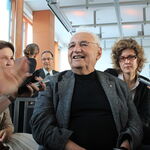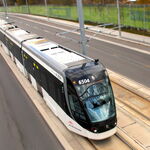Monarch Butterfly
Superstar
I think Winnipeg gets colder than Toronto.
New Flyer Battery-electric buses enter into service with Winnipeg Transit
From link.
New Flyer Battery-electric buses enter into service with Winnipeg Transit
From link.
Winnipeg Transit is now using up to four New Flyer Xcelsior® battery-electric transit buses in daily service as part of an electric bus demonstration. The project is a collaboration involving the City of Winnipeg, the Province of Manitoba, Manitoba Hydro, New Flyer Industries, Mitsubishi Heavy Industries, Red River College, and Sustainable Development Technology Canada.
The buses will be in daily operation on the route 20 Academy-Watt, a 40 kilometer, two-hour route starting at Winnipeg Richardson International Airport, making its way through the city centre to East Kildonan and returning to the airport. The route was chosen as its length, speeds and loads are typical of many central business district routes in Canada and USA. Winnipeg Airports Authority permitted New Flyer to install a high power charging station at the airport, a project that was completed in October of 2014.
Zero-emission battery-electric propulsion transit buses are expected to significantly reduce greenhouse gas and smog-causing criteria air contaminant emissions. In Manitoba, where the electrical grid is highly renewable (nearly 100 percent of electricity is generated without burning fuel), the use of electric propulsion buses is expected to translate to an estimated reduction of 160 tonnes of greenhouse gas emissions, per bus, per year.




